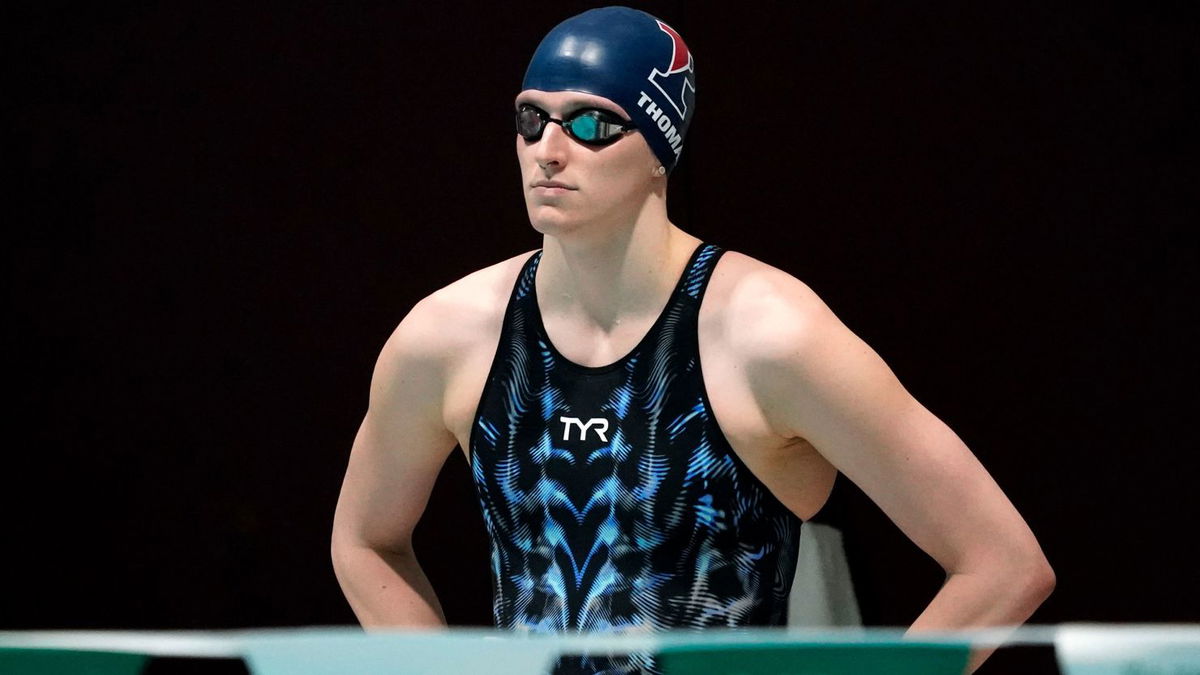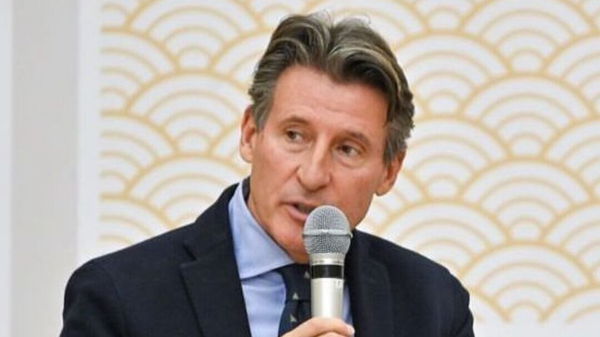

In 2022, a 23-year-old swimmer created history by clinching the title in the women’s 500-yard freestyle. Who are we speaking about? We’re referring to the first transgender NCAA champion in Division I, Lia Thomas. Swimming for the University of Pennsylvania, she scorched to the finish in 4:33.24. After shattering the glass ceiling in collegiate swimming, the 25-year-old shifted her focus to an even bigger goal—the Paris Olympics.
Watch What’s Trending Now!
Alas, in the pursuit of excellence, her aspirations fell short due to a battle with the Court of Arbitration for Sport (CAS). As a result, the NCAA star couldn’t embark on her chase for glory in the U.S. Olympic Trials. While her aspirations of competing may have hit a bump, it seems it was just the calm before the storm. According to a recent development, the swimmer might lose out on her dream for good. What really went down?
ADVERTISEMENT
After Paris Olympics, this individual is looking to change things around
The 2024 Paris Olympics dazzled the world with grandeur, record-breaking performances, and more. As thrilling as the Games were, it didn’t come without a few hitches. The President of World Athletics, Sebastian Coe, aims to rectify this. The new IOC president will be elected in March 2025 and will take over in June. However, the 68-year-old happens to be one of the seven candidates in the running. As per Sky News, if he won, Coe mentioned he would explore a ban on transgender women competing in women’s events at the Olympics. It could possibly end the bid for Lia Thomas and several other transgender athletes looking forward to the upcoming Summer Games.
The former Olympic champion previously oversaw the London 2012 Games before heading World Athletics. After the success of the Summer Games twelve years ago, he has vowed to introduce “science-based policies that safeguard the female category.” He has followed this approach with WA since taking over in 2015. Last year, the organization announced that it would restrict the participation of male-to-female transgender athletes. “We’ve taken the lead at World Athletics, as you know, and I think for me the principle is very clear,” Lord Coe admitted.
Top Stories
J. J. McCarthy Awaits Punishment From Vikings After Rejecting Kevin O’Connell’s Instructions

Prayers Pour In as South Carolina HOFer QB Dies at 52

Patrick Mahomes Doesn’t Hold Back in Emotional Statement After Chiefs QB’s Troubling Knee Injury Update

Andy Reid Announces Patrick Mahomes’ Injury Diagnosis as Chiefs HC Doesn’t Hold Back After Playoffs Elimination

Dale Jr. Warns of Deeper Issues as Joe Gibbs Parts Ways With Decade-Long Executive

Chase Elliott’s Popularity Hits New Low as Dale Jr.’s Daytona 500 Return Triggers Record-Breaking Sale

However, Sebastian Coe reiterated what this decision would mean. While his policy would be clear-cut and unambiguous, it would also be co-curated with all the stakeholders. “So that it is relevant to the athletes, sports scientists, the national Olympic committees, and the international federations. And they’re telling that they want to be a part of that journey,” he exclaimed. According to the 68-year-old, if this isn’t done well, then it would be a repeat of what went down in Paris. What is he referring to, you ask?
ADVERTISEMENT
On August 9, Algeria’s Imane Khelif stunned the crowd by clinching a gold in the boxing event in Paris. She beat Yang Lu in the women’s 66kg category at Stade Roland-Garros. Even though the 25-year-old had finally fulfilled her dream of chasing Olympic glory, she had to endure intense scrutiny due to intense gender misconceptions. Despite becoming the first female boxer from Algeria to represent the nation in the Games, her achievements were promptly discarded due to the unfortunate controversy.
ADVERTISEMENT

What incident started this discussion? The boxer locked horns with Angela Carini on August 1. But after the Italian bowed out due to an injured nose, it caused quite a stir on the internet. Many even cited that Khelif should not have been allowed to compete. This was due to her ban from the 2023 boxing world championships. The Olympian had failed an unspecified gender eligibility test from the International Boxing Association (IBA). This only added more fuel to the fire.
ADVERTISEMENT
Unfortunately, it began a barrage of hateful comments. It eventually led to her father producing her official birth certificate. This was his plea to prove that Imane Khelif was indeed born a female. However, the IOC’s current administration stated that if your passport states that you are a woman, then you can contest in women’s sports. Will this change with Sebastian Coe taking over the reins? It is very likely to happen. He believes that these regulations would reflect on many international federations as well. But what does this mean for Lia Thomas?
Lia Thomas faced a heartbreaking ban shortly before the Games
After turning heads in the 2022 NCAA Championship, the swimmer looked forward to shattering the glass ceiling in the professional circuit. Unfortunately, World Aquatics shattered those dreams by announcing that any transgender athlete who underwent “any part of male puberty” would be banned from competing in the women’s category. This didn’t sit well with Thomas, who filed a plea for the ban with the CAS.
ADVERTISEMENT
However, three judges on the Court of Arbitration for Sport concluded that she lacked standing to challenge the policy. This was due to Lia Thomas’ contention in the Pennsylvania men’s team from 2019 to 2020 while the swimmer underwent hormone therapy. She believed the ban was discriminatory and deprived athletes of incredible opportunities. The 25-year-old even reiterated that this should have been viewed as a call for all trans women athletes to continue their fight.

ADVERTISEMENT
But that’s not how World Aquatics viewed it. They believed that this would help protect women’s sports. The organization also reiterated that national federations cannot modify the application of a world governing body’s rule. The swimmer was understandably defeated by the outcome. On the other hand, many supported this decision.
Yet, Lia Thomas had a few people in her corner. One of them happened to be GLAAD (Gay & Lesbian Alliance Against Defamation) president and CEO Sarah Kate Ellis. “World Aquatics continues to spread disinformation about transgender people as a distorted way to protect women. Transgender women are women, and all athletes who want to play and follow the rules should have a chance to do so,” she exclaimed. Even though the 25-year-old was hopeful about her chances in LA 2028, this recent development could crush her dreams yet again. What do you think about Sebastian Coe’s decision?
ADVERTISEMENT
ADVERTISEMENT
ADVERTISEMENT
ADVERTISEMENT

